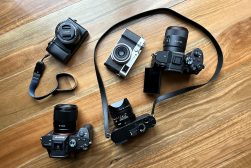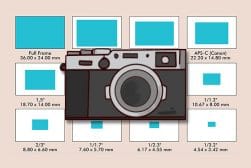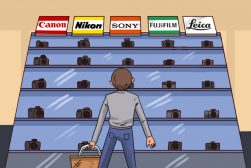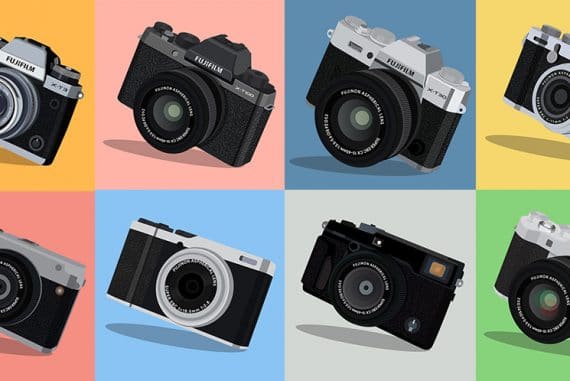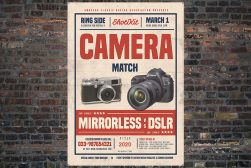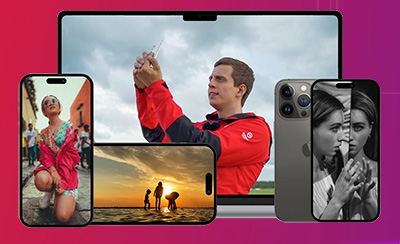
Cameras vs SmartPhones
What are the advantages of a digital camera over a smartphone, and why should you invest in one in 2023? Read on as we take a look.
Learn | Photography Guides | By Alex Zitser
Smartphone cameras have come leaps and bounds in photographic capability in recent years, offering larger megapixel counts and features normally reserved for high-end cameras – such as zoom and portrait effects.
This has made them a viable option for many social snappers and everyday users looking for a camera.
However, as smartphone camera capabilities have developed, so have traditional digital camera technologies.
The industry is going through a shift at the moment, with DSLRs quickly becoming replaced with mirrorless cameras, which have cemented their position as the new standard in both professional and amateur photography.
In fact, in 2017, total mirrorless shipments increased by 30 percent, and DSLR decreased by 10 percent.
Mirrorless cameras are an advancement on DSLR by offering a smaller, lighter and mechanically simpler design, stronger autofocus systems, high-speed shooting and greater video capability including 4K.
All these advancements have come about in the last decade or so.
At the end of the day, even the top smartphone on the market cannot compete with the capability, superiority and versatility of a digital camera.
Digital cameras are built to be flexible and help you achieve the perfect image, every time, in any condition.
Shutter speed, zoom, depth-of-field, and night time photography are just some examples of the capabilities of digital cameras that smartphones have not been able to replicate – in part due to their sensor size and ability to accommodate interchangeable lenses.
5 Advantages of Digital Cameras over SmartPhones
1. Lens Versatility
Despite how far smartphones have come, they cannot compete with the versatility interchangeable lenses provide.
Digital cameras have the option of hundreds of lenses, from wide-angle to tilt-shift to telephoto to primes, whereas smartphones are restricted to roughly a 28mm lens.
2. Sensor Size
Sensor size is a big differentiator with digital cameras, in part because the larger the sensor, the shallower the depth of field (aka bokeh effect) photographers can capture.
Smartphones use intelligent tricks to mimic zooms and bokeh effects, but these are all AI and algorithm-powered, meaning there are often shortfalls and loss of quality.
For example, to achieve a portrait shot, smartphones use algorithms to detect the foreground of an image and blur the rest of the photo. For finer details such as curly hair and animal fur, this can often go awry and cause unsightly glitches in the final photo.
3. Image Quality
Simply put, digital cameras produce far clearer and crisper images, largely due to their higher resolution. A higher resolution means more pixels per inch, which means more colour, detail and clarity.
Modern mirrorless cameras are able to achieve resolutions of over 100MP, such as the Fujifilm GFX100, which modern flagship smartphones cannot come close to.
Not only will this create high-quality images, but will also make printing them easier.
Often a photo on a smartphone can look great, but as soon as you try to print it, the quality degrades significantly. Other than resolution, this could also be affected by the image format.
[Related: Inspirational iPhone photos]
Where digital cameras support uncompressed/raw files, smartphones tend to capture images in compressed formats such as JPEG.
How Much Do You REALLY Know About Photography?! 🤔
Test your photography knowledge with this quick quiz!
See how much you really know about photography...
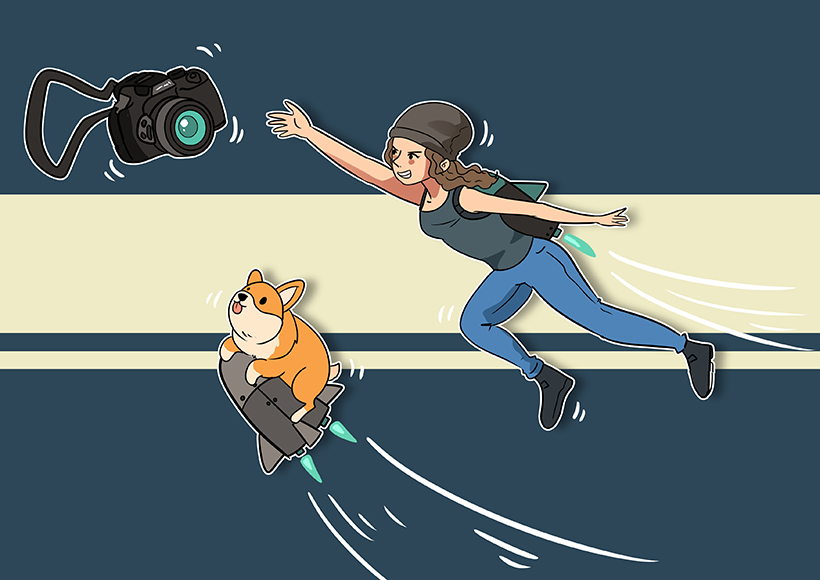
[Related: RAW vs JPEG]
For phones that support RAW image capture, they’ll require plenty of storage space as these images are uncompressed and large in size – which isn’t always ideal for smartphones.

Shot with the Fujifilm x100F. Photographer: Charlie Blevins
4. Customisation
If the versatility of a wide range of lenses isn’t enough, then the different available settings will do the trick. From changing the aperture to focal length and shutter speed, digital cameras offer options that smartphones will never be able to mimic without breaking the rules of physics.
[Related: What is Aperture?]
With settings on smartphone cameras, their response is mostly controlled by the processor which takes an intelligent guess as to what the final image should look like.
Controlling a camera’s settings meanwhile causes a direct effect – which is particularly helpful when shooting in manual mode and looking for very specific shooting styles.
5. Night-time shooting
The main reason smartphones will never be able to compete with cameras unless they suddenly dramatically increase in size, is because they’ll never be able to match the size of sensors found in cameras.
In short, the larger the sensor, the more light it can pick up. Smartphones have made great strides in this, but often require a steady hand and a still subject or you’ll experience blurry, noisy images.
Even smartphone-specific features such as internet connectivity are being integrated into modern digital cameras, particularly mirrorless cameras, with WiFi, NFC and Bluetooth commonplace to make it easier to share content on the go.
[Related: iPhone Photo Academy Review]
Despite the advances in smartphone camera capability, there are certain aspects of digital cameras that can never be replicated, which is why the industry remains strong and the choice for both amateur and professional photographers.
For those looking for an easy and compact camera solution, a smartphone will do. For others looking for more control, better quality images and greater versatility, then a digital camera will make all the difference.
Disclaimer: All recommendations are impartial and based on user experience, with no bias to the products or the brand. The products in this post may contain affiliate links.

Check out these 8 essential tools to help you succeed as a professional photographer.
Includes limited-time discounts.





